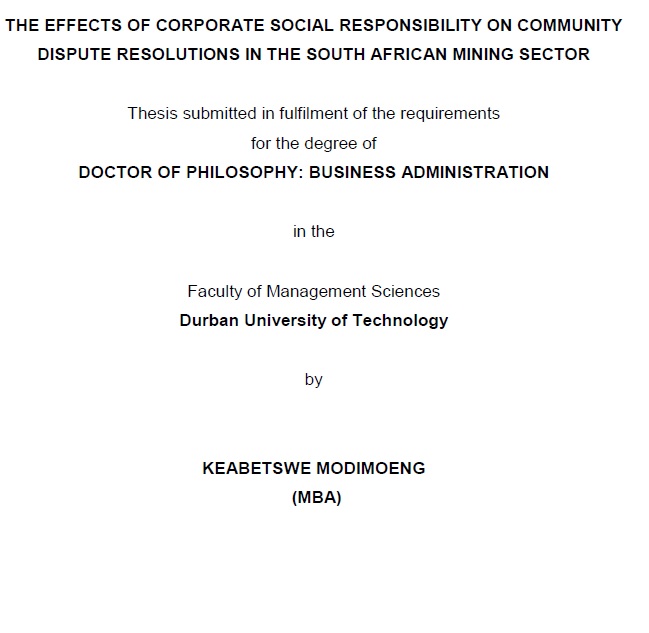The Effects of Corporate Social Responsibility on Community Dispute Resolutions in the South African Mining Sector

The South African mining sector has over the years been perceived to be exploitative and not responsive to the investment interests of immediate stakeholders where they extract (local communities and labour). The perception of non-investment has resulted in, amongst others, extensive community and labour unrest.
The South African government has enacted policies to guide Corporate Social Responsibility (CSR) for the sector but the historic problems associated with this sector persist. As a result of community concerns around mining CSR, communities are mobilising around civic organisations, with the aim of bringing the mining sector to account and fostering community development in their localities. This research explores and analyses if the mining sector adheres to CSR in their ventures and how communities perceive the sector’s activities and CSR approaches.
The thesis also highlights the implications for managers as the rise of civic organisations propels a new engagement approach between mining companies and communities. This new approach has inherent challenges such as delays in reaching consensus and exposing mining companies to internal community politics. Additionally, this research also brings to the fore an illustration of the emerging bargaining power communities have, and how it compels mining corporates to engage with communities more consultatively.
This resource is part of the Mining Towns Collection kindly sponsored by the Municipal Capability and Partnership Programme. Abstract based on source.


Comments